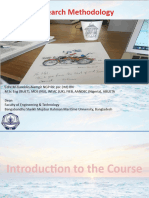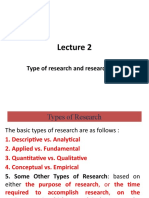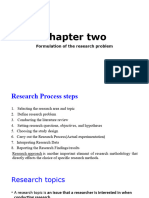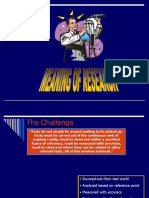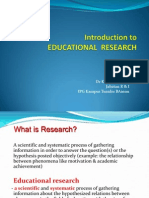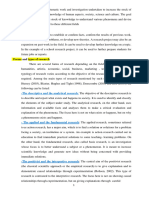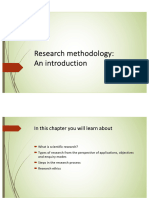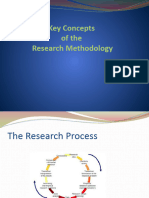0% found this document useful (0 votes)
58 views35 pagesCAR Week 2 - Understanding Research Part 2
The document discusses the research process and key aspects to consider when conducting research. It outlines the typical stages of research including selecting a topic, developing research questions and hypotheses, planning the research design, collecting and analyzing data, and communicating results. It also discusses different types of research questions and highlights important criteria for developing good research questions.
Uploaded by
shaunte45williamsCopyright
© © All Rights Reserved
We take content rights seriously. If you suspect this is your content, claim it here.
Available Formats
Download as PDF, TXT or read online on Scribd
0% found this document useful (0 votes)
58 views35 pagesCAR Week 2 - Understanding Research Part 2
The document discusses the research process and key aspects to consider when conducting research. It outlines the typical stages of research including selecting a topic, developing research questions and hypotheses, planning the research design, collecting and analyzing data, and communicating results. It also discusses different types of research questions and highlights important criteria for developing good research questions.
Uploaded by
shaunte45williamsCopyright
© © All Rights Reserved
We take content rights seriously. If you suspect this is your content, claim it here.
Available Formats
Download as PDF, TXT or read online on Scribd
/ 35


